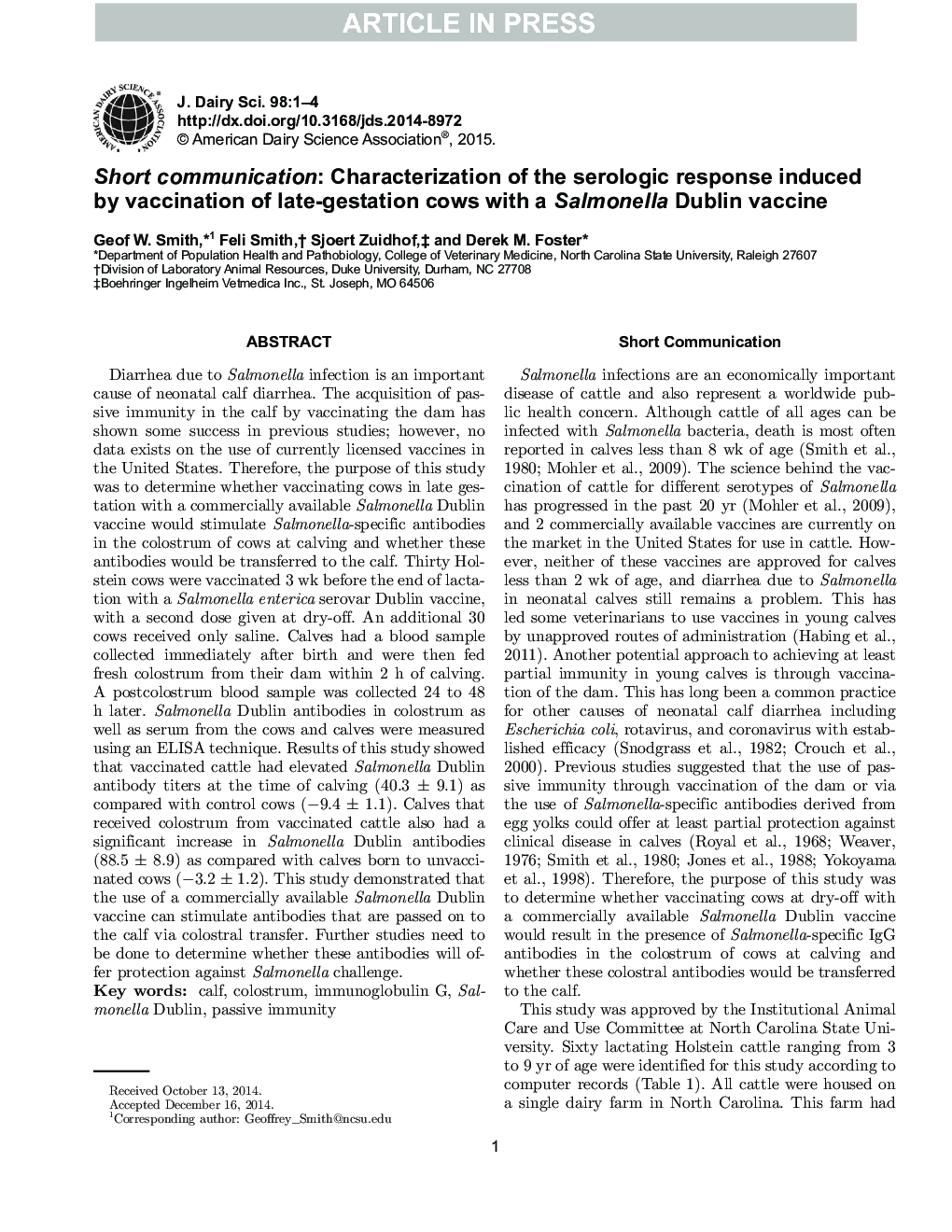| Article ID | Journal | Published Year | Pages | File Type |
|---|---|---|---|---|
| 10974779 | Journal of Dairy Science | 2015 | 4 Pages |
Abstract
Diarrhea due to Salmonella infection is an important cause of neonatal calf diarrhea. The acquisition of passive immunity in the calf by vaccinating the dam has shown some success in previous studies; however, no data exists on the use of currently licensed vaccines in the United States. Therefore, the purpose of this study was to determine whether vaccinating cows in late gestation with a commercially available Salmonella Dublin vaccine would stimulate Salmonella-specific antibodies in the colostrum of cows at calving and whether these antibodies would be transferred to the calf. Thirty Holstein cows were vaccinated 3 wk before the end of lactation with a Salmonella enterica serovar Dublin vaccine, with a second dose given at dry-off. An additional 30 cows received only saline. Calves had a blood sample collected immediately after birth and were then fed fresh colostrum from their dam within 2 h of calving. A postcolostrum blood sample was collected 24 to 48 h later. Salmonella Dublin antibodies in colostrum as well as serum from the cows and calves were measured using an ELISA technique. Results of this study showed that vaccinated cattle had elevated Salmonella Dublin antibody titers at the time of calving (40.3 ± 9.1) as compared with control cows (â9.4 ± 1.1). Calves that received colostrum from vaccinated cattle also had a significant increase in Salmonella Dublin antibodies (88.5 ± 8.9) as compared with calves born to unvaccinated cows (â3.2 ± 1.2). This study demonstrated that the use of a commercially available Salmonella Dublin vaccine can stimulate antibodies that are passed on to the calf via colostral transfer. Further studies need to be done to determine whether these antibodies will offer protection against Salmonella challenge.
Related Topics
Life Sciences
Agricultural and Biological Sciences
Animal Science and Zoology
Authors
Geof W. Smith, Feli Smith, Sjoert Zuidhof, Derek M. Foster,
